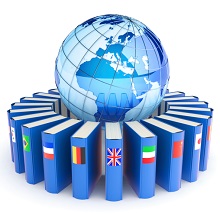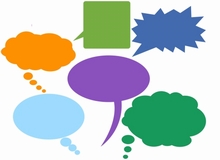The Best Way to Choose a High-Quality Translator
December 22, 2014

When reading a translated document, have you ever wondered, "Who translated this?"
When a translation is done by a translator who is a native speaker of the target language, the result is a high-quality, natural text representation. Sometimes a Japanese translator is required to provide a deeper understanding of the Japanese source text.
Let us outline the points to consider in order to select the best translator on a case by case basis.
What is the Secret to Successful Website Localization?
December 15, 2014

The real test of success in website localization is whether the company is able to expand into new markets. In a sense, a website is the face of your company: if it is simply translated word-for-word, the language will be awkward and leave a bad impression with your customers, which in turn could deliver a devastating blow to sales.
So, then, what do you need for successful website localization? In this article we will take a look at the secrets to successful localization.
Creative Translation Wins the Hearts of Customers
People unfamiliar with translation tend to think that it is simply a matter of changing the words of one language into another. But localizing a website requires more than just translation. It involves creatively adapting the messages to the target market.
Translation Saves Lives! The Importance of Medical Translation Stands the Test of Time
December 12, 2014

The medical world is constantly evolving. Across the globe new drugs and medical devices are being developed, and new research findings are announced almost daily . Although the fields of medicine and translation seem to be unrelated at first glance, in reality they are inseparable. It is not an exaggeration to say that translation drives medical advancement. This is why the high-demand, recession-proof field of medical translation has gained renewed attention. In this article we will delve into the reasons why medical translation is recession-proof as well as other issues the field faces.
The Wide-ranging Field of Medical Translation
What we refer to as medical translation actually covers a diversified range of areas. The three that are presently in the highest demand are: academic, pharmaceutical, and medial device translation.
Aspects and Challenges of Video Game Translation
December 8, 2014

As globalization spreads, the race to sell Japanese video games in overseas markets is ramping up. Game localization is an essential part of this process, but there are unique difficulties in video game localization that differ from translating texts and documents. In this article we will look at some of the challenges specific to video game translation.
The Idiosyncrasies of Video Game Translation
Translating video games can require more advanced skills than translating manga or novels. The reason is that with video games, in addition to text you also have audio and visual components as well as game interface to deal with, so when translating you must also take into account aspects such as cut-scenes, dialogue, and game control.
The Past and Future of the Rapidly Growing Field of Comic and Manga Translation
December 5, 2014

Japanese manga has gained international attention as leading entertainment contents. With globalization and the proliferation of mobile devices, translation services in this field are in high demand. In this article we will look at some of the challenges in translating comics and manga as well as its history and future.
Challenges in Translating Comics - Language, Culture, and Onomatopoeia
Translating comics and manga is not as glamorous and fun of a job as it appears. First of all, to become a comic or manga translator you need to have native-level fluency in the target language. Particularly with translating Japanese manga, besides advanced language skills, you also need to have the wit and intimate understanding of Japanese culture to be able to translate jokes and expressions unique to the culture in a way that readers of the target country will understand.
Leveraging Translation Memory Tools to Improve Translation Quality
December 2, 2014

Broadly speaking, translation support tools can be divided into two categories: translation memory and machine translation.
If you want to efficiently produce high-quality, consistent translations, translation memory tools are the answer. Translation memory tools store translations in units of sentences or phrases called "segments", and the stored translations can be reused whenever the same or similar sentences appear again.
With machine translation tools on the other hand, you simply put in the text you want translated, and the software automatically translates it for you. While convenient, this type of translation software does not take into account the context of the source text and the resulting translation tends to be unnatural and awkward. So it should be used only for reference purposes.
Ever-evolving Translation Memory Tools
There are several translation memory tools on the market today but it is SDL Trados, developed by German company Trados, that has perhaps had the most significant impact on the translation market in Japan. Today many other companies are developing memory tools with their own unique features seeking to improve user-friendliness, and we look forward to seeing what comes next.
| << November 2014 | December 2014 | January 2015 >> |
Japanese Translation Agency Arc Communications
For urgent needs, call:
+81-3-5730-6133
